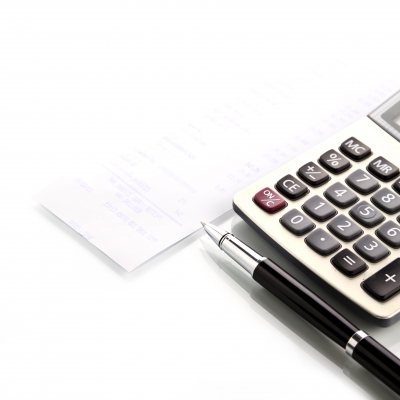
With nearly 50 percent of us living pay check to pay check, saving the money to buy a house may seem like an impossible task. You may feel as if you will never be able to save a down payment or improve your credit rating so you can afford to finally own your home. This guide will provide you with the tips to get your finances together so you can get approved for a loan and finally buy the home of your dreams.
Making the down payment
The number one factor that determines your chance of getting a loan is your demonstrated ability to make the down payment. Depending on your lender and the type of loan, your down payment can range anywhere from three percent of the home's cost to 20 percent. On a $200,000 home, this amount could vary between $6,000 to $20,000. Since you cannot purchase your home without this chunk of change, it's important to start saving right away. Here's how:
- Make a monthly budget. Designate a specific amount to take out of your paycheck each period and place it immediately into a high-yield savings account. You can usually have this done automatically by your bank to ensure that the money is deposited each pay period. Getting into this habit will also prepare you for the mortgage payments you will have to make after you purchase your home.
- Borrow from your 401 k. One of the few ways lenders will permit you to borrow the money for your down payment is through your 401 (k). Most retirement plans will allow recipients to borrow up to $50,000 from the account for a home purchase. The biggest risk associated with this type of loan occurs if you switch employers or lose your job--you may have to pay the loan off in as little as 60 days. If not, it is treated as an early withdrawal and subjected to the tax on ordinary income plus a 10 percent penalty. On a $50,000 loan, you will incur a $5,000 penalty plus $12,500 in income taxes (at 25 percent). However, if you will have no trouble paying off the withdrawal on your 401 (k) in a timely manner (typically five years) in addition to your monthly mortgage payments, it may be a plausible option.
- Getting the money from family. Parents, grandparents, aunts, uncles, and siblings are all commonly asked to help out in times of need. However, if you do have an affluent relative willing to let you borrow the money for your down payment, your lender will not improve your loan. This increases your debt-to-income ratio, and makes you a less desirable candidate because you will not only have to pay your mortgage, but your generous family member as well. If you are receiving assistance with your down payment from a relative, your lender will require both parties to sign a document stating that the money is a gift with no intention of being repaid. This is known as a "gift letter."
Improve your credit score
Another important factor lenders will consider before offering you your loan is your credit history. The better your credit rating, the more likely you are to pay your bills and the more desirable a candidate you are. It will also determine how high of an interest rate you will receive on your mortgage payments. The amount of your debt and whether you make your payments on time all contribute to your credit score, so it is important to improve your rating before attempting to get a loan. Here's how:
- Pay off your debt. The first step to improving your credit score is paying down your debt. Your lender expects your debt to be no more than 38 percent of your income. If your monthly income is $4,000, the lender will expect your debt to be under $1,520 a month. If you already have $1,400 in debt from credit cards, student loans or a car loan, then the money left over for your mortgage payment is a mere $120 a month. Begin by paying off high-interest debt (credit cards) before lower-interest debt (car and student loans). Designate a certain amount of each check to put towards your debt each period to get it down as quickly as you can.
- Establish a history of timely payments. If you are prone to late payments, it's time to begin making your payments on time to demonstrate yourself as an attractive candidate for a loan. Get your debt down and continue using only one card, making sure to make your payments in full and on time each month.
- Get a copy of your credit report. To find out what your report looks like to prospective lenders and to determine how to improve it, you should obtain a copy of your credit report. You actually have three different credit scores from three separate credit reporting agencies--Equifax, TransUnion and Experian. You can receive one free copy of your report from each agency a year if you visit here. You will have to pay a small fee to receive your exact score.
How will your credit score affect your interest rate?
The following table offers an example of what your interest rate and monthly payments might look like depending on your credit score. Figures are based on a $200,000, 30-year fixed-rate mortgage (Scores less than 600 are usually not approved for a loan).
| Credit Score | Interest Rate | Monthly Payment |
|---|
| 760-850 |
5.26% |
$1,541 |
| 700-759 |
5.48% |
$1,568 |
| 680-699 |
5.66% |
$1,590 |
| 660-679 |
5.87% |
$1,617 |
Photo by: Naypong (Freedigitalphotos.net)